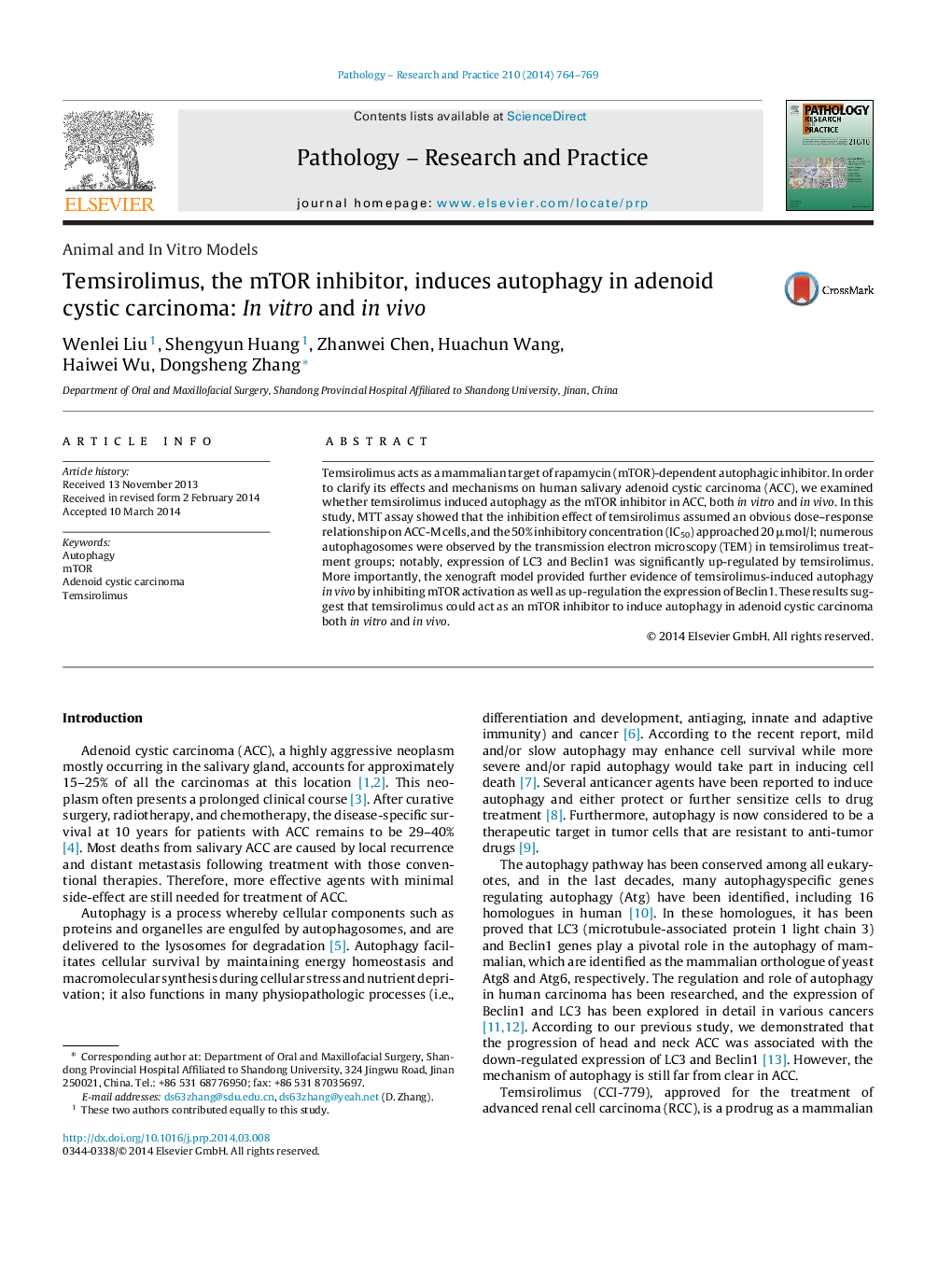| Article ID | Journal | Published Year | Pages | File Type |
|---|---|---|---|---|
| 2155386 | Pathology - Research and Practice | 2014 | 6 Pages |
Temsirolimus acts as a mammalian target of rapamycin (mTOR)-dependent autophagic inhibitor. In order to clarify its effects and mechanisms on human salivary adenoid cystic carcinoma (ACC), we examined whether temsirolimus induced autophagy as the mTOR inhibitor in ACC, both in vitro and in vivo. In this study, MTT assay showed that the inhibition effect of temsirolimus assumed an obvious dose–response relationship on ACC-M cells, and the 50% inhibitory concentration (IC50) approached 20 μmol/l; numerous autophagosomes were observed by the transmission electron microscopy (TEM) in temsirolimus treatment groups; notably, expression of LC3 and Beclin1 was significantly up-regulated by temsirolimus. More importantly, the xenograft model provided further evidence of temsirolimus-induced autophagy in vivo by inhibiting mTOR activation as well as up-regulation the expression of Beclin1. These results suggest that temsirolimus could act as an mTOR inhibitor to induce autophagy in adenoid cystic carcinoma both in vitro and in vivo.
